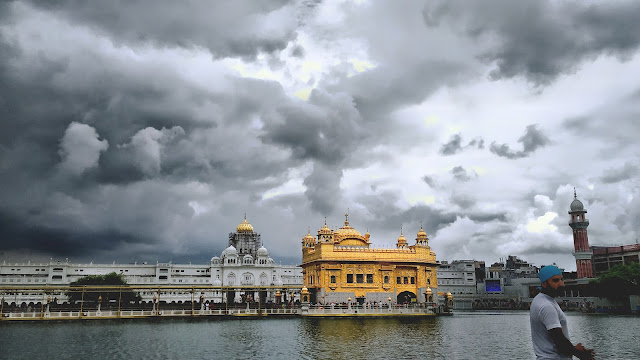Punjab, a state in North India, is known for its cultural heritage, agriculture, and industry. The history of Punjab dates back to ancient times when the region was inhabited by a group of people known as the Indus Valley Civilization. The region has seen the rise and fall of many empires and dynasties, each leaving its mark on the land and its people. In this article, we will explore the ancient history of Punjab, from the Indus Valley Civilization to the Mauryan Empire.
Indus Valley Civilization:
The Indus Valley Civilization, also known as the Harappan Civilization, was one of the earliest civilizations in the world. It flourished in the northwestern region of the Indian subcontinent, including parts of present-day Punjab, from 3300 BCE to 1300 BCE. The civilization was known for its well-planned cities, advanced drainage systems, and a script that is yet to be deciphered.
The Indus Valley Civilization had a significant impact on the development of Punjab. The cities of Harappa and Mohenjo-Daro, located in present-day Pakistan, were important centers of trade and commerce. The civilization also had extensive trade links with other regions, including Mesopotamia and Egypt.
Aryans:
After the decline of the Indus Valley Civilization, Punjab was invaded by a group of people known as the Aryans. They were a nomadic people who migrated to the Indian subcontinent from Central Asia around 1500 BCE. The Aryans were responsible for the introduction of the Sanskrit language and the Vedic religion, which had a significant impact on the culture and tradition of Punjab.
The Aryans established several kingdoms in the region, including the Kuru and Panchala kingdoms. These kingdoms were known for their military prowess and their patronage of the arts and literature.
Mauryan Empire:
The Mauryan Empire was founded by Chandragupta Maurya in 321 BCE in Ancient Period. The empire was centered in the eastern part of the Indian subcontinent but extended its influence to include present-day Punjab. The Mauryan Empire was one of the largest and most powerful empires in ancient India.
The Mauryan Empire had a significant impact on the history of Punjab. The emperor Ashoka, who ruled from 268 BCE to 232 BCE, is known for his role in spreading Buddhism throughout the region. He erected several pillars and rock edicts in Punjab and other parts of the empire, which served as a testament to his commitment to Buddhism.
The Mauryan Empire declined after the death of Ashoka, and Punjab became a battleground for various kingdoms and dynasties.
Gupta Empire:
The Gupta Empire was founded by Chandragupta I in 320 CE. The empire was centered in the northern part of the Indian subcontinent but extended its influence to include present-day Punjab. The Gupta Empire is known for its patronage of the arts and literature, which led to a significant cultural renaissance in India.
The Gupta Empire had a significant impact on the history of Punjab. The emperor Samudragupta, who ruled from 335 CE to 380 CE, conquered several kingdoms in the region, including the Malwa and Arjunayana kingdoms. He also erected several pillars and rock edicts in Punjab and other parts of the empire, which served as a testament to his military prowess.
The Gupta Empire declined in the 6th century CE, and Punjab became a battleground for various kingdoms and dynasties.
Conclusion:
The history of Punjab is a testament to the rich cultural heritage and diversity of the region. From the Indus Valley Civilization to the Gupta Empire, each dynasty and empire has left its mark on the land and its people in ancient era. The region has been a melting pot of cultures and traditions, which has contributed to its unique identity. Today, Punjab is a thriving state known for its agriculture, industry, and cultural heritage, which continues to attract tourists from all over the world.









No comments:
Post a Comment